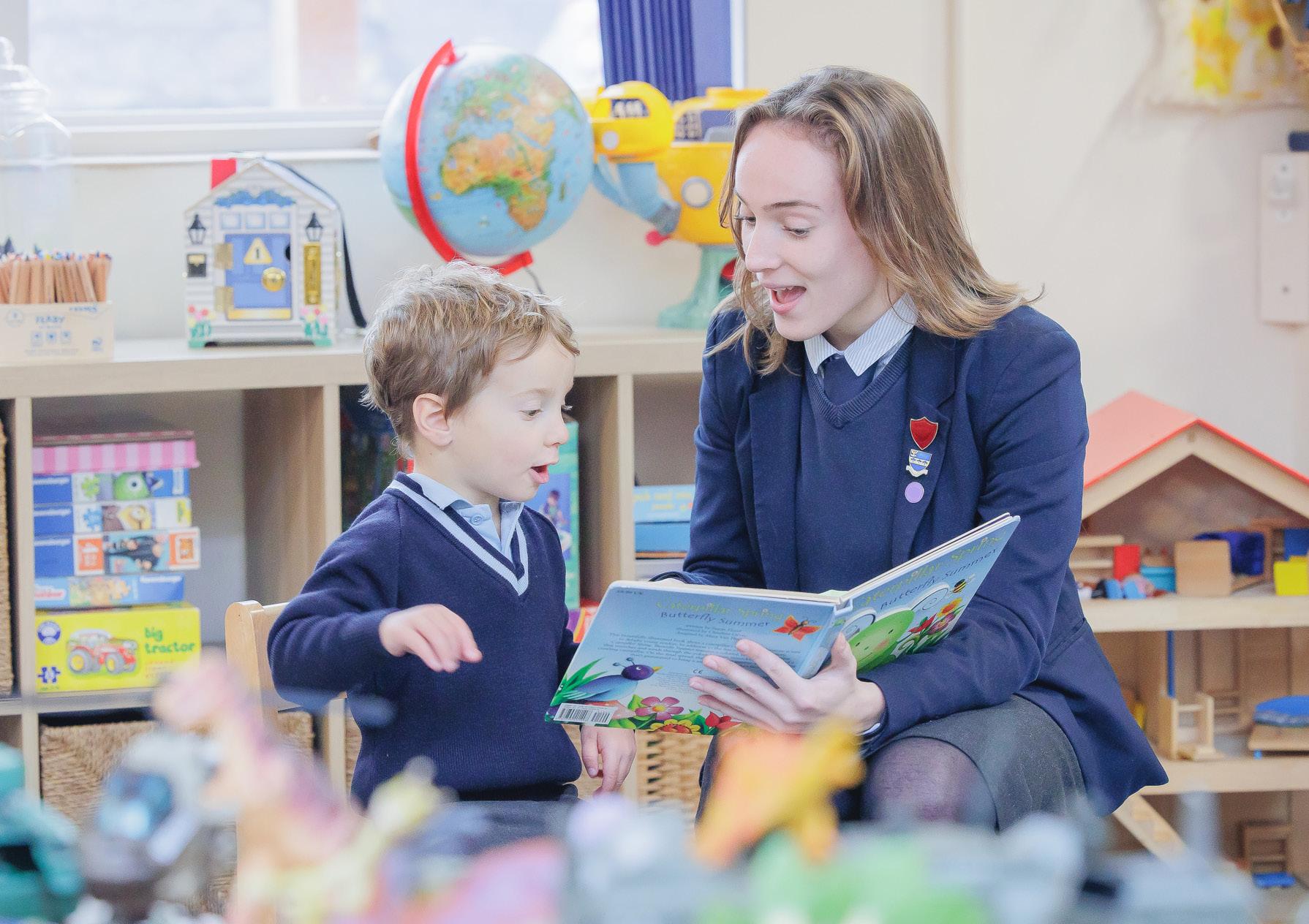
3 minute read
Helping your child to gain independence
Encourage your child to:
• Dress and undress themselves with the minimum of help.
• Ask when they want to go to the toilet.
• Cope with their own toilet needs.
• Use a handkerchief properly.
• Use a knife and fork properly.
• Take care of their belongings.
• Put things away after use.
• Learn their surname and to have some knowledge of their address.
• Develop some road sense as you travel about.
Helping your child to play
• Provide opportunities for your child to develop physical control and co-ordination, e.g. climbing, skipping, rough and tumble activities, throwing, kicking, building with bricks, making models, cutting and sticking, scribbling, drawing, painting, colouring, doing jigsaws and sewing.
• Provide opportunities for them to use their imagination, e.g. dressing up, painting, role play.
• Provide opportunities for them to explore their environment, e.g. playing with water and sand, dough, cooking, gardening and observing their immediate surroundings.
Playing with your child
Play sets the stage for learning. Your involvement as they play can support and encourage their early learning experiences.
• Encourage them to LOOK and LISTEN.
• Sort objects according to colours, shapes and sizes.
• Play games e.g. I Spy, Dominoes, Find the difference puzzles.
• Make and colour patterns.
• Watch and listen to TV and radio together.
• Listen to music together.
• Join in with songs and rhymes.
• Encourage them to TALK and THINK.
• Talk to them about the things they do and see.
• Extend their vocabulary and sentence construction by example rather than correction.
• Talk about the things they discover.
• Welcome their questions and answer them as best you can.
• Ask them open ended questions –
• What do you think?
• What could happen next?
• What could happen if I do this?
• Encourage them to REMEMBER.
• Teach them Nursery Rhymes and songs.
• Help them to recall previous experiences.
• Encourage them to take short verbal messages to other people.
• Play simple memory games with cards, e.g. pairs.
Giving your child experiences
• Allow them to share your activities, e.g. cooking, cleaning, gardening, shopping, and cleaning the car.
• Encourage their questions.
• Try and plan opportunities to see the world around us e.g. to travel by train, upstairs on a bus, a visit to the zoo, seaside or the swimming pool.
• Use every opportunity that presents itself for talking, looking, listening, thinking, counting, reading, e.g. pointing out notices and what they say – bus stop, numbers on buses and homes, counting cars, cows or sheep, collecting and sorting flowers or shells etc.

Giving your child every opportunity to love and learn about books
• Get your child to talk about the pictures in books.
• Encourage them to look at the book, starting with the first page and ending with the last.
• Tell them stories and rhymes.
• Help them to tell their own stories.
• Look at books together.
• Read to them regularly.
• Let them pretend to ‘read’ their favourite stories.
• Encourage them to guess what is going to happen.
• Take them to the library to choose books.
• Be seen to enjoy books yourself.
• Make scrapbooks together.
Encouraging your child towards writing
• Give plenty of varied materials for drawing, tracing, colouring and painting.
• Encourage your child to write using squiggles/marks on paper. This is the beginning of writing so praise your child when they do this.
• Let your child make their own shopping list, write letters and write messages, using the above method of recording.
• If your child wants to write their name, teach them to write it in lower case letters with a capital letter at the beginning.
• Show them how to draw the numerals.
• If your child is interested in the individual letters, it is helpful that you teach them the sound a, b, c and not the names of the letters A, B, C.
Handwriting
Some children before they start school like to learn to write their names and some letters. It is very important that children learn to form letters and hold their pencil correctly from the beginning. If a child writes incorrectly at home, when they start school they have to relearn how to form the letters correctly. Many children find this quite difficult as they have got into bad habits with writing, which then becomes difficult to correct.
Please DO NOT use capital letters except for the first letter of your child’s name.
We look forward to welcoming your child to Reception and we aim to have a long and happy friendship with you and your family. We hold an informal Parent Reading Evening during the first week of school. However, if there is anything in this booklet that you would like to discuss further, please do ask.









